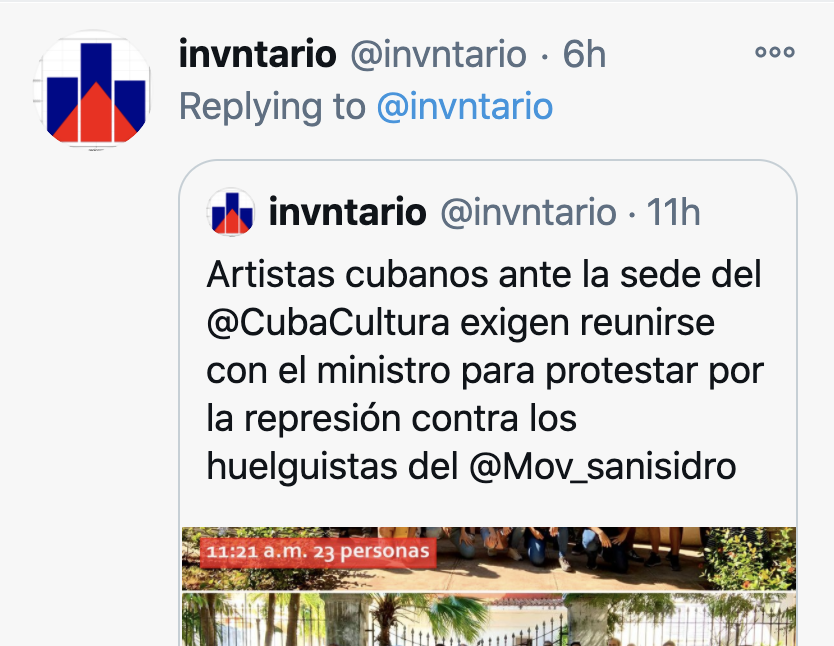
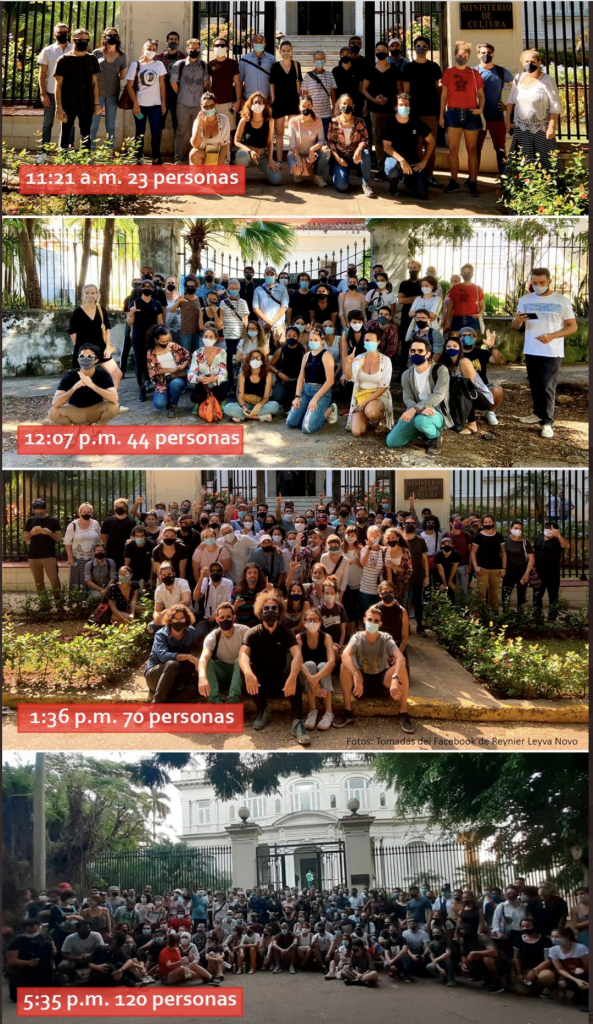
Cuban artists in front of the Ministry of Culture demanding a meeting with the minister to protest the repression against the San Isidro Movement hunger strikers…. and… as the day wore on…
English Translations of Cubans Writing From the Island


Cuban artists in front of the Ministry of Culture demanding a meeting with the minister to protest the repression against the San Isidro Movement hunger strikers…. and… as the day wore on…
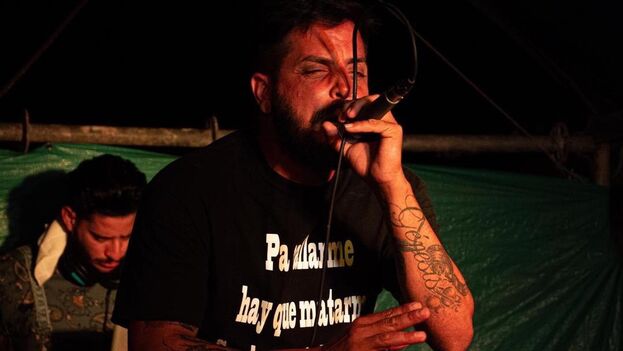
![]() 14ymedio, Luz Escobar, Havana, 8 September 2020 — Omar Mena is an artist without fear when it comes to expressing himself. The author of more than 11 albums since he began his career in rap more than a decade ago, he is known in his genre as El Analista [The Analyst]. Mena has always been at the side of the most complicated causes that have been defended within the culture in recent times: the fight against Decree 349, the support for the campaign that called for the freedom of the artist Luis Manuel Otero Alcántara and the vote to petition the rejection of the Constitution, among others.
14ymedio, Luz Escobar, Havana, 8 September 2020 — Omar Mena is an artist without fear when it comes to expressing himself. The author of more than 11 albums since he began his career in rap more than a decade ago, he is known in his genre as El Analista [The Analyst]. Mena has always been at the side of the most complicated causes that have been defended within the culture in recent times: the fight against Decree 349, the support for the campaign that called for the freedom of the artist Luis Manuel Otero Alcántara and the vote to petition the rejection of the Constitution, among others.
After a lot of struggling from one place to another, today he resides with his family in Santa Clara, from where he talks with 14ymedio about the challenges of being a free artist in Cuba and about the projects he has defended to stay active in the world of hip hop.
Question. What were your beginnings in music like, and what prompted you to rap?
Answer. I started to do rap in 2008, recording an album at the Real 70 production company. I’ve been in this field for twelve years. Initially I was a rocker, I really liked rock and I had my band, but I was always rebellious, what I liked was expressing what I felt. The issue was already complicated with the members. There were four of us and some began to be afraid because of what I said in my lyrics. So I decided to do rap. After my first album I recorded in some Santa Clara studios and later in one that I put together myself. continue reading
Question. Where can you hear hip hop in Santa Clara?
Answer. Santa Clara does not have spaces specifically for hip hop, the usual clubs in the city are the only spaces rappers have. For example, at the AHS there are about two clubs a month and one in El Mejunje de Silverio
When you have my kind of lyrics, you live with censorship from the beginning. The Government never guaranteed me anything with respect to my work or my music, I have always created independently
Question. Due to the lyrics and the free expression of the songs that you write, you have suffered censorship from the institution, what did this mean for your career? How did you experience it? What hit you the most?
Answer. In this genre, censorship is not something that affects an artist’s career much. When you have the lyrics that I have, you live with censorship from the beginning. The Government never guaranteed me almost anything with respect to my work or my music, I have always created in an independent manner.
What hurts is the dimension that censorship brings, the worst censorship is the one exercised by the artist against the censored artist. I have directed events when I belonged to the institution and brought censored artists such as David D’omni or the Patriot Squad and everyone participated, but if there are no artists from those who remain in the institutions who are committed to Cuban society, that censorship will be the one that will continue to hit the most, because no one can prevent an artist from being brave and inviting you; what can happen, at most they will tell him that he is responsible and that’s it.
What also happens is that censorship is a machine: they not only go against your work but against you.
Question. I suppose that resuming your career independently has closed many doors for you, what new experiences did creation outside the institution bring to you?
Answer. After censorship arrived, I spent almost a year devising a new strategy, because it was always clear to me that it was not going to stop. When you are censored, all doors close and the locksmith keeps all the keys. then there is nowhere to perform, you need to create doors and options and that’s what I did.
What hurts is the scope that censorship brings, the worst censorship is the one exercised by the artist against the censored artist
I created a project called Genesis Club. Initially it was only about supporting artists in their work, holding improvement workshops, helping them to record their albums but then it evolved into another period.
I have a large patio so that’s where I built my stage. It has been the most special thing that has happened to me in my life, one for the artists who have performed there and another for the support of the people of the neighborhood. It is not the same to sing for people who have the same problems than for those who attend so they can party. In a club everyone goes to drink their bottle and the neighborhood people attend out of curiosity and pay close attention to everything that’s said.
That is what the Government fears, new comments said in the neighborhood and the neighborhood starts to think, reflecting on what happens there. It is one of the most special things that has happened to me.
The issue of repression has been more complicated, let’s call a spade a spade. I am not a politician, I am an artist, I do not belong to a party, I am just an independent thinker, a young man with his own way of thinking and who expresses it without fear. It is not a question of being brave, it is a commitment that I think must be taken. Everyone should give themselves the personal satisfaction of saying what they think and that is my case.
What the Government is afraid of, what new idea can be spoken in the neighborhood and the neighborhood is left thinking, reflecting on what is expressed there
Whenever a rumor goes around or with each demonstration that social networks or the opposition calls for, two policemen get stationed in front of my house to prevent me from going out. When the Clandestinos thing was going around they stationed them there too. It’s crazy.
It is difficult for me to understand that they do that to an artist, especially when they control everything. They know that I don’t belong to any party and yet I’m being repressed. Personally, it does not affect me, I can live quietly, I am free and I am at peace.
Question. Do you agree with the idea that a rapper from the provinces is at a disadvantage compared to one from Havana to achieve success in his career?
Answer. It is relative. Initially, I lived in Havana and I never achieved what I did later here in my province. Everything is where you pump it out, where you put effort to work. The thing about Havana is that there are 400 rappers there, but you can come to your province and make yourself noticed, I don’t see that as impossible.
It is true that there are more opportunities there, but it is possible. Life is a line, which may curve, but it will always go to its point, if something is there for you it will happen, everything depends on the effort you put into it, I do not agree that opportunities exist only in Havana.
When I’ve had to make an important video I have gone to Havana, like the one from 349, the one about “no to the Constitution”, I have gone and been videoed, when the issue of Luis Manuel’s freedom the same thing happened, shot the video, they counted on me from my province.
Question. Having created a concert space in the house where you live with your family, what consequences has it brought you? How has it worked so far?
Answer. The creation of space in the house has not brought me many problems, just a few citations, the normal that one lives with daily. I think it is done to make you feel the intimidation and surveillance. They always ask me about what I’m going to do and I always answer the same thing: I’m going to make art.
A State Security officer told me that they had an order to prosecute me, but that they were going to give me the opportunity to do the concert. I left calmly and told them that I was going to make art that day.
During the first concert they threatened to send me to prison if something was said on stage that was not in accordance with the Revolution’s discourse. A State Security officer told me that they had an order to prosecute me, but that they were going to give me the opportunity to do the concert. I left calmly and told them that that day I was going to make art and that the next day they would do what they had to do.
David, Soandry, the neighborhood Hip Hopper came to the concert, what went on, went on. What they said was going to be said was said and nothing happened, many police cars patrolling, watching.
Every time I do a concert it’s the same. They come up here and come to ask my permission. Then they schedule me with the head of the sector to ask me what I live on and things like that, but they have no way to cross my threshold. I follow the rules, the schedules, it is at my house, it is not in the street, I do not interrupt the public space.
We’re here to make art, it is a free space, the neighborhood supports me immensely, they help me in a huge way, they fill up the audience space, they have never disappointed me. I live two kilometers from the park and people come from there. I have never before sung for as many audiences as I have here and there is always an atmosphere full of freedom.
Translated by Norma Whiting
_______________________
COLLABORATE WITH OUR WORK: The 14ymedio team is committed to practicing serious journalism that reflects Cuba’s reality in all its depth. Thank you for joining us on this long journey. We invite you to continue supporting us by becoming a member of 14ymedio now. Together we can continue transforming journalism in Cuba.
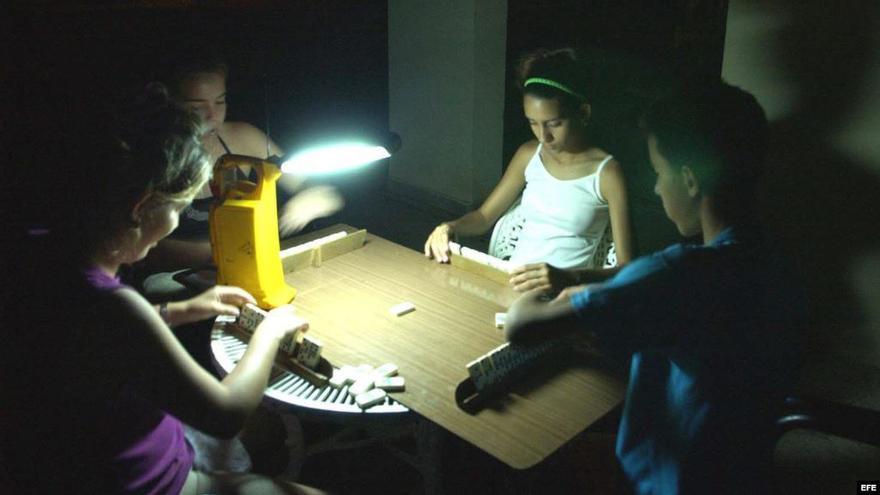
![]() 14ymedio, Havana, 4 September 2020 — The energy consumption forecasts were exceeded this August by just 1.1%, but it has been enough for the Cuban authorities to ask the population to reduce consumption. On Thursday, Deputy Prime Minister Ramiro Valdés Menéndez asked the municipal energy councils to identify the high consumers in residences and state services.
14ymedio, Havana, 4 September 2020 — The energy consumption forecasts were exceeded this August by just 1.1%, but it has been enough for the Cuban authorities to ask the population to reduce consumption. On Thursday, Deputy Prime Minister Ramiro Valdés Menéndez asked the municipal energy councils to identify the high consumers in residences and state services.
The National Energy Council estimated consumption in August at 16,890 megawatt hours, 1.1% higher than what the Island can afford. Furthermore, on the first day of September, consumption was almost 5% more than the available energy.
Liván Arronte Cruz, Minister of Energy and Mines, specified that electricity consumption is higher at night and in the early morning, especially in the residential areas of the western provinces. However, the head of the area only ended up exonerating the residents of the eastern part of Cuba, noting that in Camagüey and the center of the island energy consumption also shot up. continue reading
In August Arronte Cruz, appearing on the Roundtable program on Cuban Television program, said that the blackouts were not caused by fuel shortages and that the oil and gas production plan was being fulfilled by 103%, which would guarantee 51% of the fuel used to generate electricity. The remaining amount is attributed to what was provided by Venezuela.
The measure is worryingly reminiscent of the situation experienced on the island just a year ago, when the fuel deficit put food distribution in jeopardy and electricity consumption was restricted in the countryside and in some industries, which the authorities described as a “temporary energy” situation.
______________
COLLABORATE WITH OUR WORK: The 14ymedio team is committed to practicing serious journalism that reflects Cuba’s reality in all its depth. Thank you for joining us on this long journey. We invite you to continue supporting us by becoming a member of 14ymedio now. Together we can continue transforming journalism in Cuba.
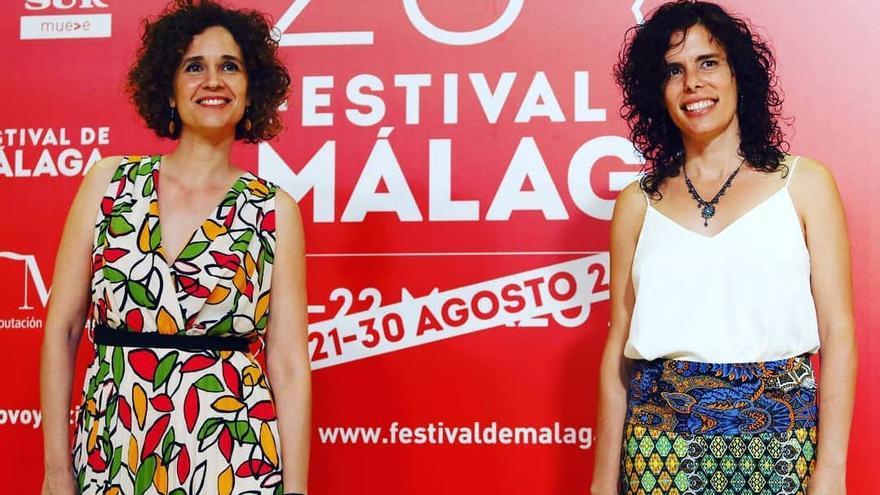
![]() 14ymedio, Havana, 30 August 2020 — On Saturday, A media voz, a feature film directed by Cuban filmmakers Patricia Pérez and Heidi Hassan, received the Biznaga de Plata prize for ’Best Director’ in the official documentary section of the 23rd edition of the Malaga Film Festival.
14ymedio, Havana, 30 August 2020 — On Saturday, A media voz, a feature film directed by Cuban filmmakers Patricia Pérez and Heidi Hassan, received the Biznaga de Plata prize for ’Best Director’ in the official documentary section of the 23rd edition of the Malaga Film Festival.
The event described the film on its social networks as a “moving” story that speaks to the friendship between two friends “with their encounters and disagreements” where “glances and intimate stories about cinema as a way of life” coexist.
The film is a co-production between Spain, France, Cuba and Switzerland under the direction of Pérez and Hassan, both graduates of the San Antonio de los Baños International School of Film and Television, and who currently reside in Spain. continue reading
In 2019 A media voz also won the Best Feature Film Award at the 32nd edition of the Amsterdam International Documentary Film Festival and the Coral Award for Best Documentary Feature Film awarded by the International New Latin American Film Festival of Havana. In this last contest, the documentary had several presentations on the island and its directors hope to be able to release it soon in the country’s cinema circuit.
This autobiographical documentary was created through the audiovisual partnership between Patricia and Heidi, who were best friends since childhood, but who were physically separated during adolescence by the path of migration to Europe for a period of 15 years. The synopsis says that a dialogue is articulated in the work that shows “two stories in which identity, motherhood and creation intersect and mutually promote each other.”
The documentary already has commitments to be shown at festivals in Israel, Peru, Greece and France, and at the end of 2020 it will be released in Spain.
__________________
COLLABORATE WITH OUR WORK: The 14ymedio team is committed to practicing serious journalism that reflects Cuba’s reality in all its depth. Thank you for joining us on this long journey. We invite you to continue supporting us by becoming a member of 14ymedio now. Together we can continue transforming journalism in Cuba.
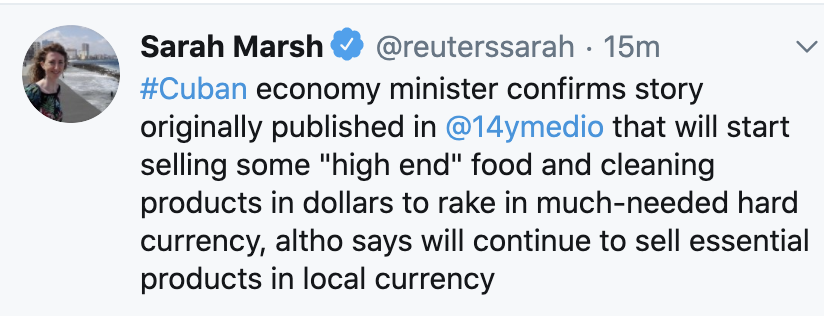
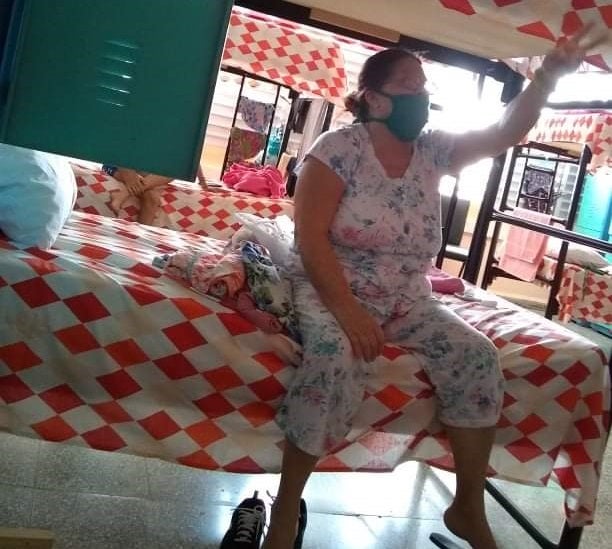
 Cubanet, Miriam Celaya, Havana, 30 March 2020 — On March 23rd, in his presentation on the Roundtable broadcast on all Cuban television channels, Cuban Prime Minister, Manuel Marrero Cruz, reported about new official measures that would deepen controls to combat the spread of the COVID-19 pandemic on the Island. Among them, it was established that all Cubans residing in the country, on their arrival from abroad, would be placed in solitary confinement to serve a mandatory two-week quarantine before returning to their respective homes.
Cubanet, Miriam Celaya, Havana, 30 March 2020 — On March 23rd, in his presentation on the Roundtable broadcast on all Cuban television channels, Cuban Prime Minister, Manuel Marrero Cruz, reported about new official measures that would deepen controls to combat the spread of the COVID-19 pandemic on the Island. Among them, it was established that all Cubans residing in the country, on their arrival from abroad, would be placed in solitary confinement to serve a mandatory two-week quarantine before returning to their respective homes.
In order to comply with this measure, said Marrero Cruz, all the necessary conditions had been created in centers specially designed for such purposes, to which travelers would be driven directly from the airport, under strict police control, and duly transported by State buses. Additionally, it was established that the travelers’ relatives would not have access to the airport to avoid any possible contagion and spread of the disease.
Unlike other practices whose compliance has not yet been verified in practice, the isolation and transfer to isolation centers of Cuban travelers went into effect immediately. continue reading
Magela was one of those Cubans who arrived back in Cuba on Tuesday, March 24th and was surprised by what seemed to her a true state of siege at José Martí Airport in Havana. The police deployment, health personnel and border authorities controlling each traveler, issuing orders and preventing their departure, evoked a Hollywood movie atmosphere.
“There was an air of uncertainty and fear among us” stated Magela. “I know that taking measures to prevent the disease from spreading in Cuba is necessary, but it is such an impressive situation to find all those personnel in their protective suits, and it is so strange to feel treated as someone with the bubonic plague that fear took hold of me. Deep down I felt a very strong wish to cry.”
However, Magela set out to assume the inevitable. In the end, she felt that undergoing quarantine was the safest thing for her and even her own family. It was reasonable and necessary, she told herself. And without protest, with other traveling Cubans like her as companions, she got on the bus that would take them to the isolation center.
“Thus, we entered the center on Tuesday afternoon. They told us that we were in El Cotorro, but I don’t know this place. It is a rural center, away from everything. If you look out the windows, all you see are fields.”
The first thing that surprised Magela at the isolation center was the forced proximity to the rest of the recluses. Several bunk beds were placed too close to each other, forcing promiscuity, as dangerous as it is unnecessary, especially in a facility that, according to those in charge of the place, has a capacity for 600 people.
“There are only around 200 here for now, in addition to the staff, but people crowd in the lines at the dining room because we are all hungry and sometimes meal waiting times are long. Even though they give us protective masks that we must use, there is not enough control over the distance between us. In addition, there are always people who are undisciplined or unaware of the risk.”
To make things worse, men and women share bathrooms on each floor, which further affects privacy. Magela believes that this results from the fact that “they,” the ones in charge, were filling the floors as travelers arrived. It seems that they did not take into account separating the bathrooms used by women from those used by men. It’s terrible.”
Another point that concerns Magela is that of cleanliness. “There are a lot of us, and hygiene is not as it should be. It has been talked about endlessly that hygiene is the most effective measure to combat the corona virus, right? Well, that is not the case here. In general, everything looks clean, but when you look at the details you realize that the required hygiene is lacking. The mirrors are stained with soap and everyone’s splashes, the normal fluids of personal hygiene — hand, face, mouthwash — are poured in the sink and they do not receive a thorough cleaning. There is also no cleaning in the rooms or hallways.”
I asked one of the people in charge if they have not raised those concerns with management. “They tell us that nobody wants to come to clean because people are afraid of catching it.” Those confined there cannot clean either, since they do not have the resources and means of protection to do so.
It is true that they deliver protective masks and chlorinated solution daily, plus they also supplied the travelers with soap and toilet paper upon arrival, but Magela declares that “conditions were not set up as they should have been. I tell you that it is not the fault of the personnel assisting us, but I do believe that it was the duty of the State to protect us with the necessary means if this confinement was to take place.”
And after a brief pause, she adds: “They (the government and the authorities in charge) think that what they are giving us is more than sufficient and get upset when one asks a question or demands something. And if you protest, they label it a gusanería*. That is not the case. We are asking about the reality we are living here and not about lies or insults. It turns out that in the end we are isolated but not protected. We are all very afraid of catching it because nobody knows who may or may not be an asymptomatic carrier of the virus.”
Of course, no one has been tested to rule out contagion. For this, it is necessary to present symptoms, although this waiting threshold supposes the possibility of infecting others.
Magela says she understands the situation in the country, and the importance of this quarantine, but she is frustrated because she expected better conditions. “I think that the resources that have been invested despite the country’s shortages are useless, since the fundamental thing at the moment is true isolation and hygiene and we have neither.”
“For example, the protective masks are changed every day, but not so the sheets and towels. They tell us that these must come from a company, and we don’t know which or when. I believe that if nobody can come to do the cleaning or if there are no answers to our concerns, they are going to have to find some solution. Let the FAR (Revolutionary Armed Forces) or another organization respond”.
Here I feel compelled to remind Magela that, among the strengths of the Revolution that the high authorities of Cuba so much like to mention, are the mass organizations – CDR (Committees for the Defense of the Revolution), FMC (Federation of Cuban Woman), and others – and also that vanguard of society, the PCC (Cuban Communist Party). Perhaps they should designate hygiene care in isolation centers a shock task for the communist militancy. After all, aren’t they the first line of defense fighters? Here is a good time to demonstrate their courage and spirit of sacrifice when the Homeland calls.
Despite everything, Magela does not want to be unfair. “Let me tell you that the food is not bad, considering the shortages that exist in Cuba. In the dining room they give us chicken, rice, beans, salad, ham, yogurt… The truth is that we have nothing to complain in that regard.”
There is also a cafeteria at the center, although not everyone is able to purchase stuff. “How it works is that they sell us in new Cuban convertible peso (CUP), but the majority of us confined here have US dollars. Let’s remember that there is a ban on taking Cuban currency out of the country and we are returning from abroad with foreign currency.”
This is another detail that the authorities have not taken into account. Consequently, the few who have CUC or national currency – who perhaps took it on their trip abroad in violation of the provisions of the law – now have an advantage over the rest. Thus, the national adage is fulfilled, where the cheater wins, often protected by the State itself.
But there is no end to the calamities. “Another problem is mosquitoes. Although they spray every day, we cannot sleep at night because there are so many mosquitoes.” However, those who are confined on the big Island do not have mosquito nets assigned to them, which introduces the additional risk of a dengue outbreak, another health scourge that is already endemic in Cuba, striking the population with more or less intensity every year. Let’s keep our fingers crossed.
Magela has little data left on her phone, the balance of the service she purchased is very low, and she still wants to send me some photos. She will not be able to buy a new round of minutes/data to connect to the Internet, nor will she have a way to communicate, unless her family or friends purchase additional time, because there is no free access for the purchase of telephone cards in the center. “Upon arrival, we were told that the Cuban telephone company Etecsa would give each one of us a free 5 CUC phone card to use, but we have not received it yet. They have already told us that people from Etecsa are here, and we are hoping that they will give us the cards today.”
On the other hand, I expect more. I hope that the official practices this time are not just letters piled on paper and all the necessary conditions are created for the safety of our quarantined compatriots, especially in terms of issues related to the strictest hygiene standards, the greatest possible respect for privacy and the proper distance between quarantined inmates. These are the minimum guarantees that we must demand of a Power that professes solidarity and presents itself as humanistic, and that asserts itself as a world-class medical power. There has never been a better time to prove it.
*Gusanería (Nest of maggots) Very informal, pejorative term used when referring to counterrevolutionaries

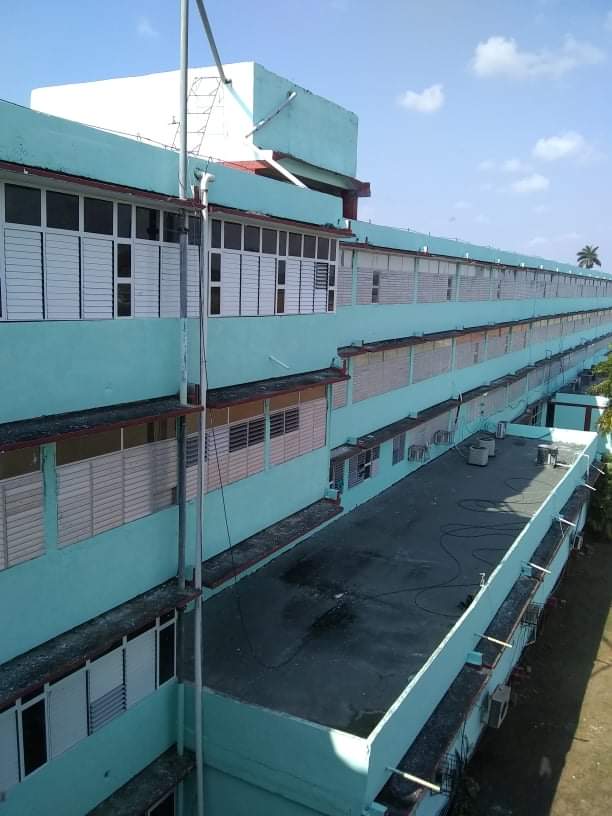
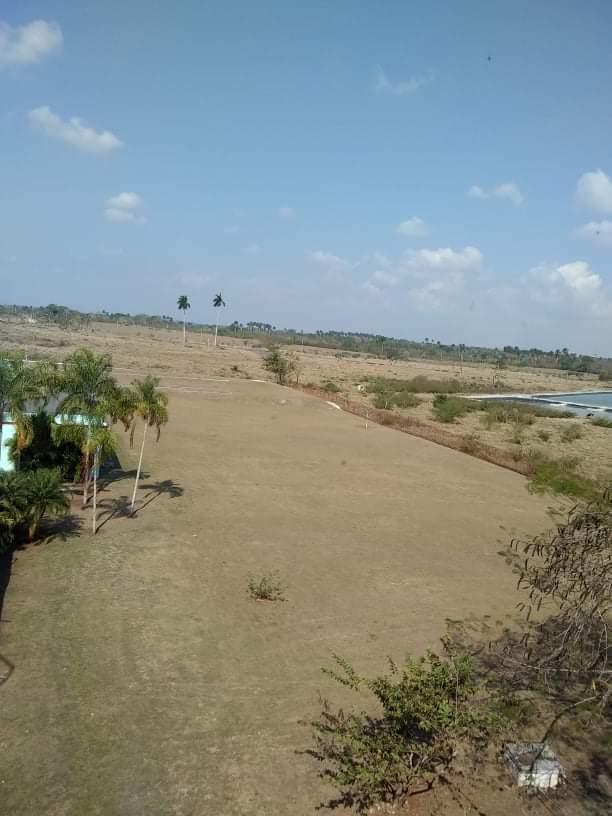
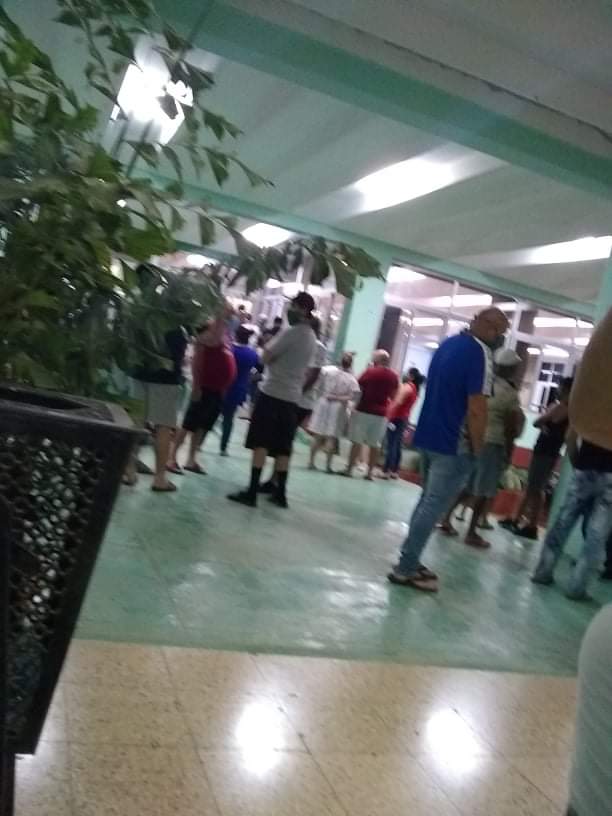
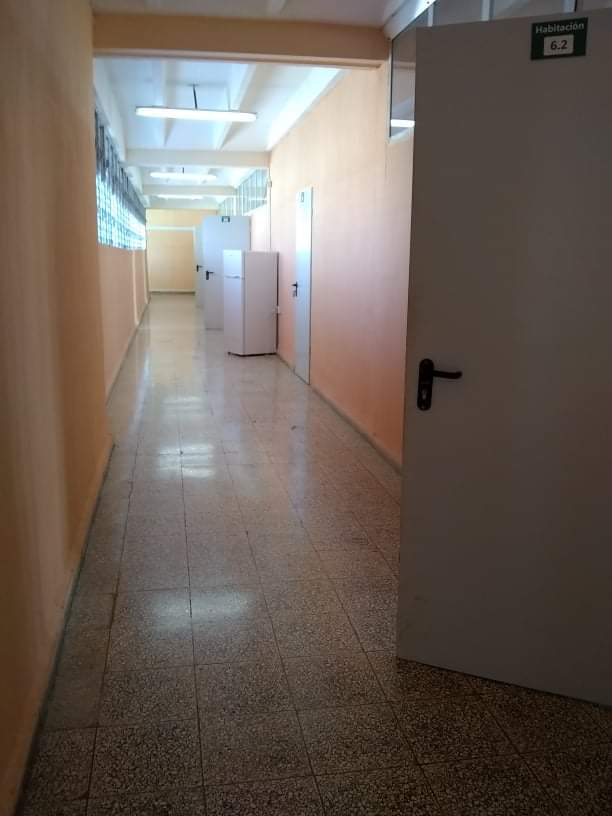
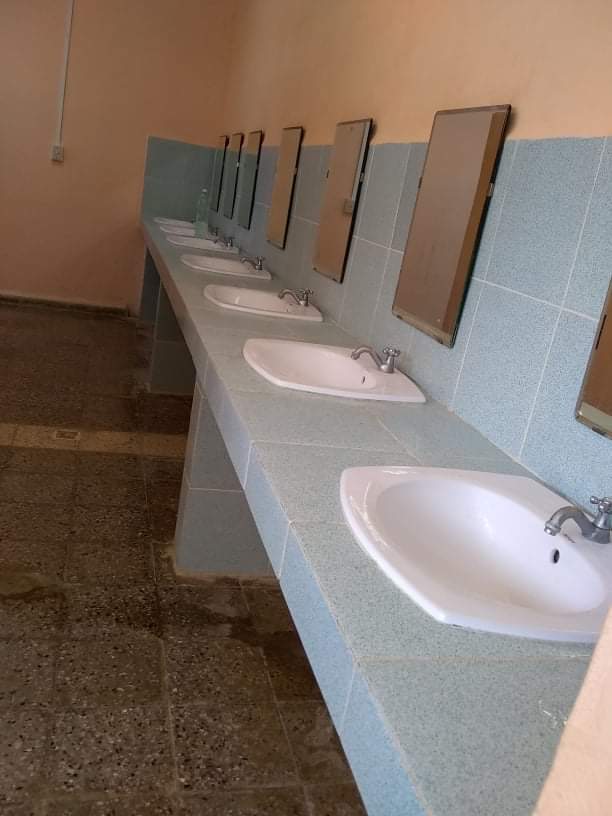

…and there is no line at the store!
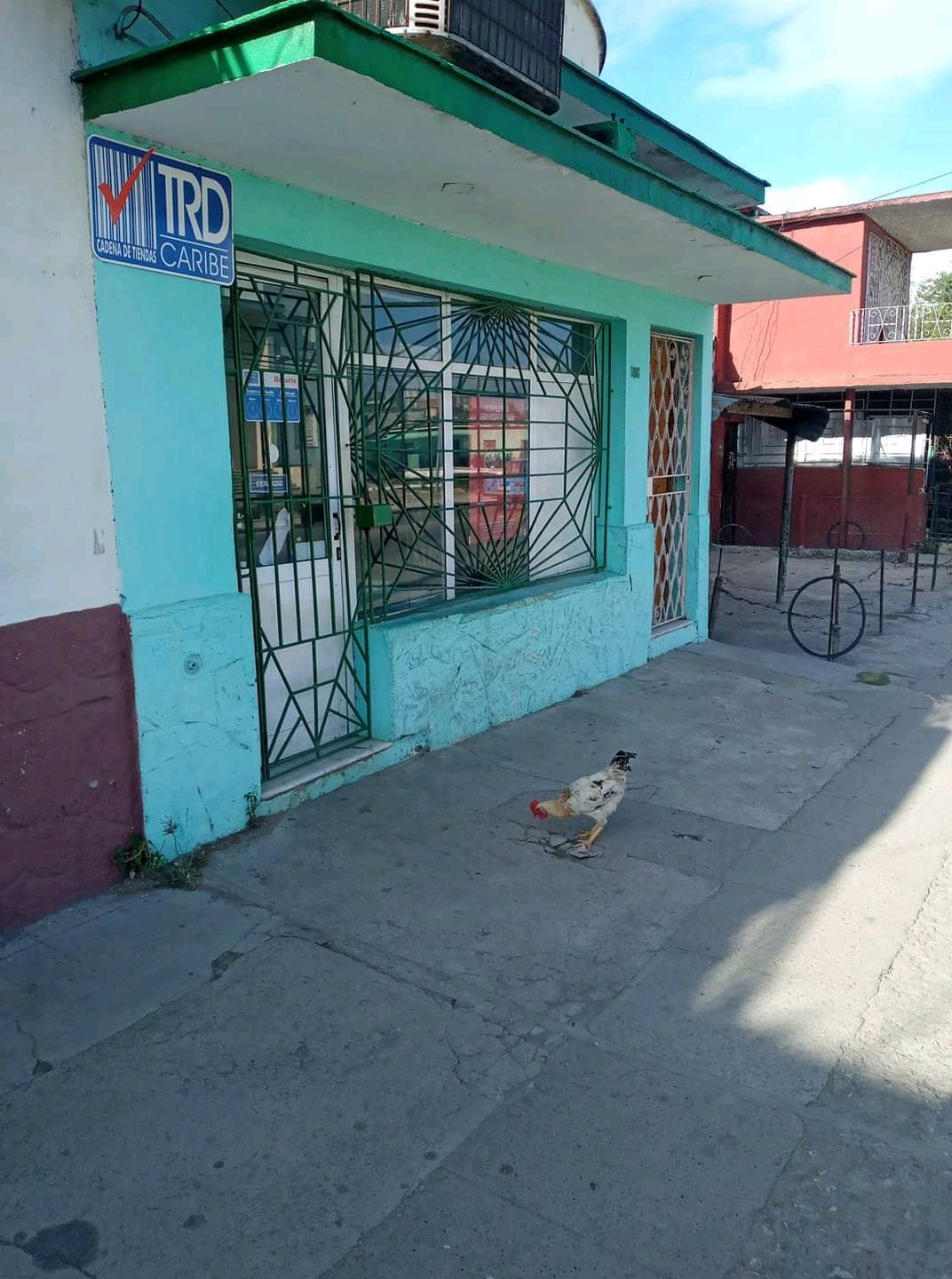
TranslatingCuba.com is BAAAACK… after an off-on-off outage that lasted well over a week. Our apologies and THANK YOU for your patience. We lost a few posts but we believe we have restored them… if you translated one and it’s not here, please let us know! (TranslatingCuba – at – gmail)

A quick reminder…
14ymedio is crowdfunding a project to prepare an in depth multimedia report on Dengue Fever in Cuba.
A modest $2,000 will get the job done. You can contribute through a campaign on Civil Media called “Boost.” Please click here; no amount is too small. continue reading
Here are a few examples of 14ymedio‘s recent and past coverage of Dengue Fever in Cuba.
Dengue Fever in Cuba, by Miriam Celaya
A Day for the Fight Against Dengue Fever
Standing Water Causes Dengue Fever Outbreaks In Arroyo Naranjo
Officials Arrested for Stealing Chemicals to Fight Dengue Fever
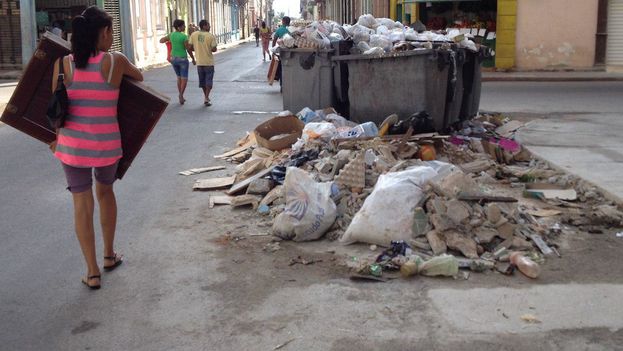
14ymedio, Miriam Celaya, West Palm Beach | 4 October 2019 — Although health authorities have never declared it a national epidemic, it is no secret to anyone that dengue fever has not only become endemic throughout the Island — with recurrent outbreaks that tend to get worse every summer — but that statistical data on those infected and fatalities who have been infected over the years constitute, to date, one of the Government’s best kept secrets..
As is often the case in a country where information is the property of the political power, the state of the national health landscape is not in the public domain and the population can only avail itself of its perception to estimate the severity of the infestation.
The state of the national health landscape is not in the public domain and the population can only avail itself of its perception to estimate the severity of the infestation
A few months ago, frequent fumigations in homes and workplaces, added to door to door medical research in each health area were indicators of a greater or lesser expansion of the epidemic outbreak. This went on mostly in Havana, where the highest rates of infestation accumulate due to population concentration and poor sanitary conditions, especially in the poorest and more densely populated neighborhoods. continue reading
However, in recent weeks fuel shortages have affected fumigation cycles, distorting citizens’ perception of the real extent of the epidemic while leaving an expedited gap for the proliferation of the virus transmitting agent, the Aedes Aegypti mosquito.
Officially reluctant to recognize the existence of the epidemic, the government has abandoned its usual practice of applying punitive actions that brand the population directly responsible for the spread of the disease. On Wednesday, several measures were made public, aimed at punishing those who “contribute, through their actions and negligence to the spread of diseases” with penalties ranging from fines to jail time.
The list of potential offenders is extensive. It covers both those who refuse to allow inspection and fumigation of their homes by agents of the “anti-vector campaign” as well as family doctors who do not carry out health measures on Cuban residents returning from travel abroad, officials who profit from resources intended to eradicate the vector, and a long list that includes patients who refuse to be hospitalized for medical attention.
At first glance, the new measures seem to respond to a government concern for public health in line with the seriousness of the health situation that the capital is going through, but such a perception is misleading. In fact, it only serves to mask, by omission, the responsibility of the State in the proliferation of vectors that seriously affect health, confusing public opinion. Another one among the thousand hidden faces of a silenced epidemic.
Thus, following the practice established six decades ago, the government once more attacks the effects and not the causes. The authorities could assume the responsibilities that relate to them and provide for appropriate collection of solid wastes that accumulate throughout the capital, clean and maintain the sewage system, repair the drains of hydraulic networks and cesspools that proliferate everywhere, prune green areas systematically, create adequate and sufficient hospital conditions and maintain an ambulance fleet capable of meeting the demand for the transfer of patients to hospitals, among other essential provisions.
Instead, the government chooses to prepare, as soon as possible, a long list of potential scapegoats who will, when the time comes, atone exclusively for their own sins and those of the Government.
While diseases, guilt and punishment fall primarily on the population, it must, in addition, weather the storm without even having the conditions to avoid contagion
Another long-standing absurdity established by the authorities is the alleged sanitary control at airports under which only travelers residing in Cuba are required to undergo blood tests, while foreign visitors, national or not, enter the country without submitting to any control. Paradoxically, diseases such as AIDS, Zika, Chikungunya and tuberculosis also entered the country through these airports — as has even the African giant snail, which has now become another unbeatable pest — without, so far, responsibilities having been purged.
While illnesses, guilt and punishment fall primarily on the population, the Cuban people must, in addition, weather the storm without even having access to minimum conditions necessary to try to stay safe from contagion.
While it is public knowledge that it is almost impossible for a large portion of Cubans to get a simple mosquito net for each family member, it is as difficult or more so to create physical window barriers using screens that prevent the insects from entering rooms, or to acquire insecticides to spray homes or repellents to apply on the skin due to the usual shortages in the markets and to the high prices of some of those products, an issue that also depends absolutely on the Government, in those rare instances when they are available.
Cuckolded and beaten, as always happens, Cubans now contemplate helplessly how the maculae of power are again swept under the carpet. Epidemics, deficiencies, sacrifices, repression and punishments remain the guarantees offered by the system. All the same, but worse, in this terribly long Cuban Middle Ages.
Translated by Norma Whiting
__________________________
The 14ymedio team is committed to serious journalism that reflects the reality of deep Cuba. Thank you for joining us on this long road. We invite you to continue supporting us, but this time by becoming a member of 14ymedio. Together we can continue to transform journalism in Cuba.
7 July 2019
Dear Readers: As you may have noticed we’ve had some problems with our site recently so we moved to a new hosting company to try to ensure these problems don’t continue. There still may be some glitches to iron out.
Karen wants us to give a shout out to Hosting Matters for being a terrific hosting company with super-responsive support and nice people. She uses them for many of her other sites so she’s had a long time to insure they are good folks and will do a good job keeping Translating Cuba up and running.
Although – like we said – there could still be a few glitches here and there as we shake down. This is a very complicated site with lots of custom programming.

![]() 14ymedio, Jorge Hernández Fonseca, Lisbon, 8 March 2019 — The struggle of the Venezuelan people to liberate themselves from the Castro-Communist yoke is on the definitive path to victory. The sequence of events that have led to today contain lessons important for the struggle of the Cuban people, for the fundamental reason that the Castro regime provides the main political advisers of the Venezuelan dictatorship and the ones who direct it.
14ymedio, Jorge Hernández Fonseca, Lisbon, 8 March 2019 — The struggle of the Venezuelan people to liberate themselves from the Castro-Communist yoke is on the definitive path to victory. The sequence of events that have led to today contain lessons important for the struggle of the Cuban people, for the fundamental reason that the Castro regime provides the main political advisers of the Venezuelan dictatorship and the ones who direct it.
Three important lessons – among others – can be extracted as experience for the Cuban political opposition absorbed in a similar struggle to that of the Venezuelan people for their freedom.
A first lesson is related to the weight that international support has had in this struggle, recognizing, supporting, and encouraging democratic Venezuelans in their effort, above all, the almost total and unconditional support that the United States has offered. For the struggle of the Venezuelan people this is very important, because Cuban opposition sectors insist in keeping their distance from US support, to avoid the inevitable and hackneyed Communist propaganda. Being supported by the US does not mean being their puppet. continue reading
The second lesson that we Cubans must learn is the importance of the exile in the struggle for freedom. We know that the Castroite dictatorship has always sown the seed of division between “Cubans inside and Cubans outside,” a seed that has been absorbed to a certain extent by opposition sectors from within the Island. If, in the case of Chavista Venezuela there is a monolithic external support, it is in large measure the result of the work of the Cuban exile.
There is a third lesson that applies to the Cuban case, increasingly clear in the Venezuelan case. Despite the fact that all of Latin America insists on ruling out an external military solution, we Cubans know that Maduro will not hand over power if he is not forced to do so. When he was alive Fidel Castro coined a phrase that is also valid in Venezuela: “What we obtained by force, they will have to take away from us by force.” In Venezuela it’s a matter of the force being that of the Venezuelan army itself, but if that is not possible, then an outside force.
Additionally, the support for the democratic Venezuelan people to the current struggle is owed in large part to the work of American members of Congress of Cuban origin, like Marco Rubio and Miguel Díaz Balart, among other Cuban American officials, who have contributed decision-making support to the United States presidency, instructing it to take decisive actions in favor of the democracy and freedom of an oppressed and needy Venezuela, even humanitarian aid. The Venezuelan fighters inside the country feel heartfelt thanks for their Latin American brothers and sisters in key positions within the American administration, without feeling self-conscious about that support, selfless and in solidarity, as it is from fellow Latinos.
In Cuba there has been enough division over these three matters, now put on the discussion table and highlighted in the struggle of the Venezuelan people. The dictatorship of Maduro, like the Castro dictatorship, insists on placing the conflicting dichotomy between Chavismo and the US, copying the Castro regime’s outline, which repeats that the Cuban dilemma is not between the oppressed people of the Island and the oppressive dictatorship, but rather between “the Revolution and the US.” No one from the opposition within Venezuela rejects international support and much less do they reject the collaboration of the United States against Maduro. We Cubans must learn that lesson.
Translated by Sheilagh Carey
_________________
The 14ymedio team is committed to serious journalism that reflects the reality of deep Cuba. Thank you for joining us on this long road. We invite you to continue supporting us, but this time by becoming a member of 14ymedio. Together we can continue to transform journalism in Cuba.
The power of cheerful positivity to end a dictatorship.
Lyrics
Chile joy is coming
Chile joy is coming
Chile joy is coming
Because whatever I say, I am free to think
Because I feel it’s time to win freedom
As long as there are abuses, it is time to change
Because enough of misery, I will say no
Because the rainbow is born after the storm
Because I want my ways of thinking to flourish
Because without the dictatorship, joy will come
Because I think about the future, I’m going to say NO
We say no, with the force of my voice
We say no, I sing it without fear
We say no, all together to succeed
We say no, for life and for peace
Get over death, this is the opportunity
To overcome violence with the weapons of peace
Because I believe that my country needs dignity
For a Chile and for all, we say NO
We say no, with the force of my voice
We say no, I sing it without fear
We say no, all together to succeed
We say no, for life and for peace
We say NO
Chile joy is coming
Chile joy is coming
Chile joy is coming
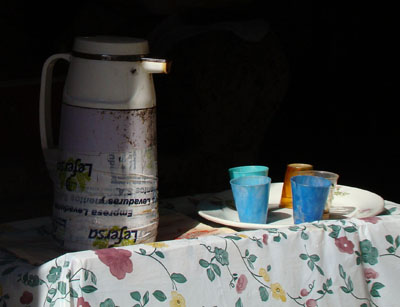
8 January 2019: As of today, our records show that 288 translators (who have chosen to identify themselves; many have not) have translated 426 Cubans (a number which includes mostly individual names but also organizations/groups).
THANK YOU TO EVERYONE who has made and continues to make this project possible.
On 8 January 2008, one of the project founders, on her first and only trip to Cuba, was at the Havana Malecon for a rather desultory celebration of the 49th anniversary of the bearded ones’ entry to Havana: some fireworks and a rather small crowd dutifully shouting Viva! call-and-response style.
If anyone had suggested that 11 years later…